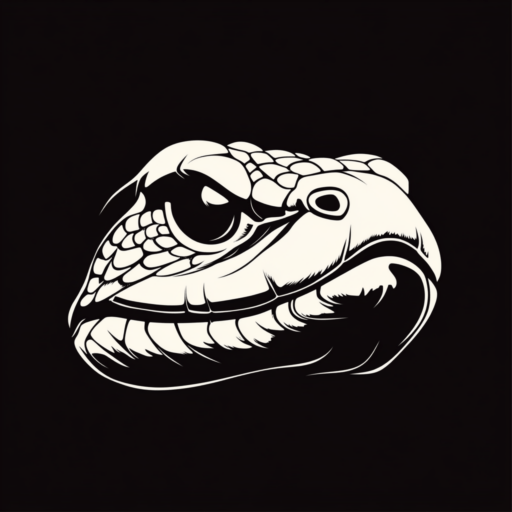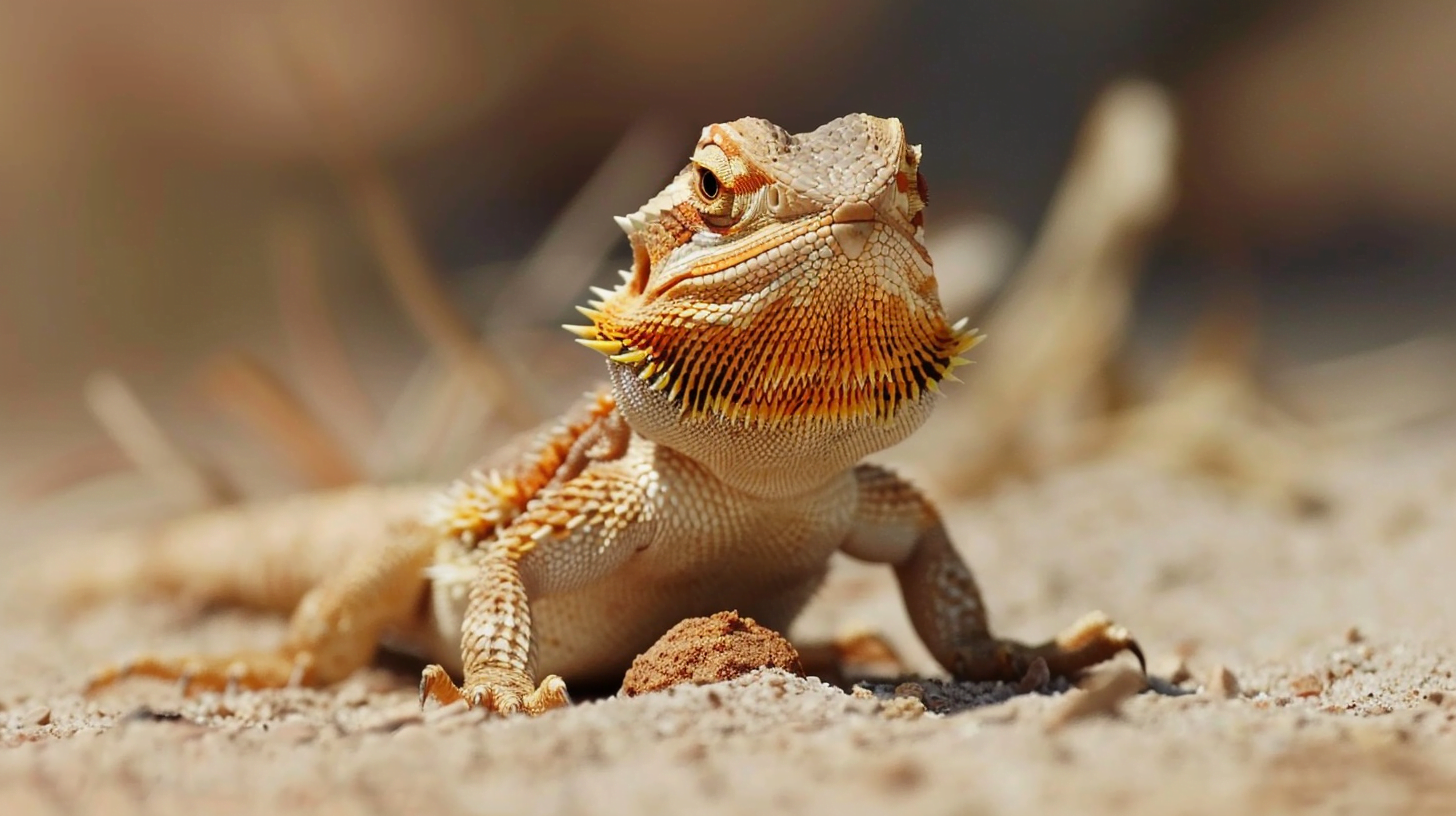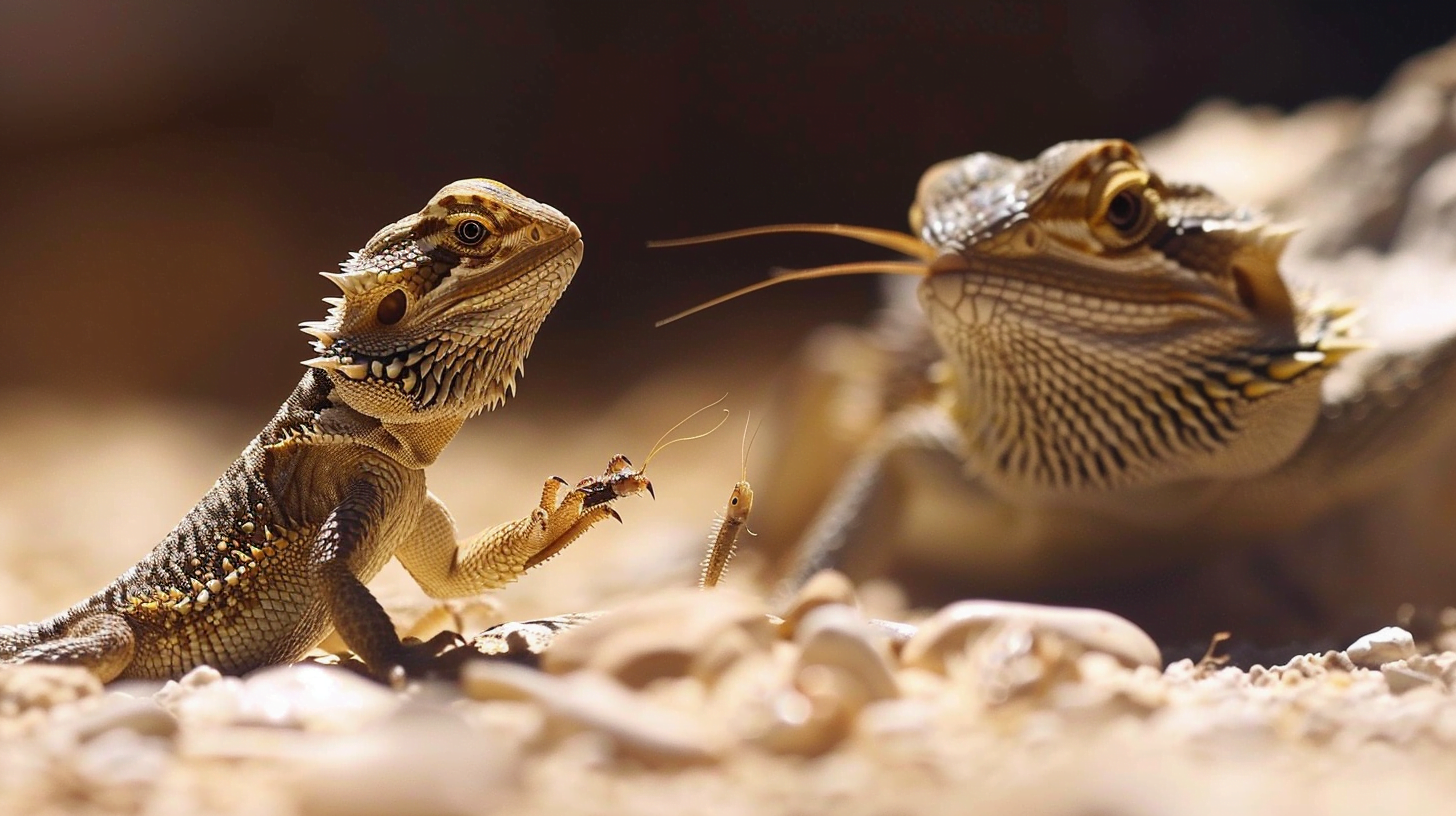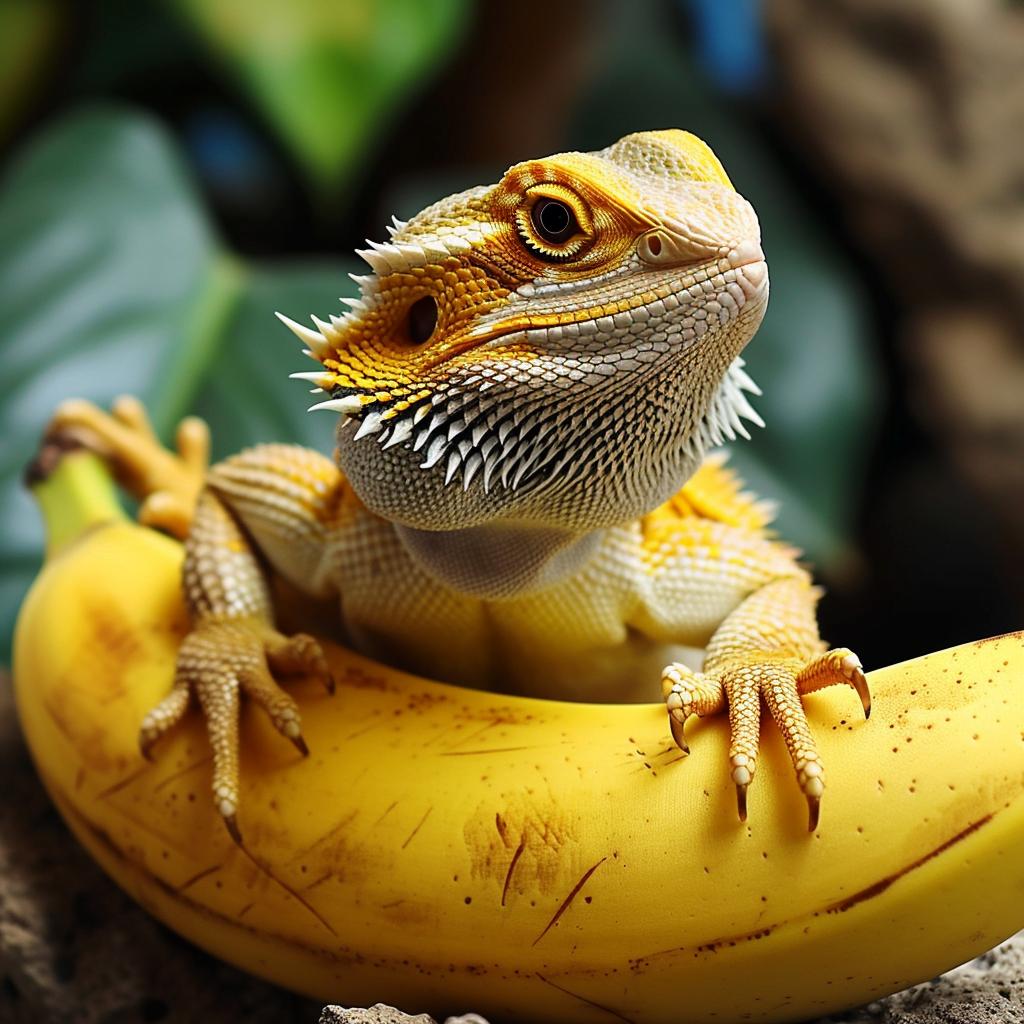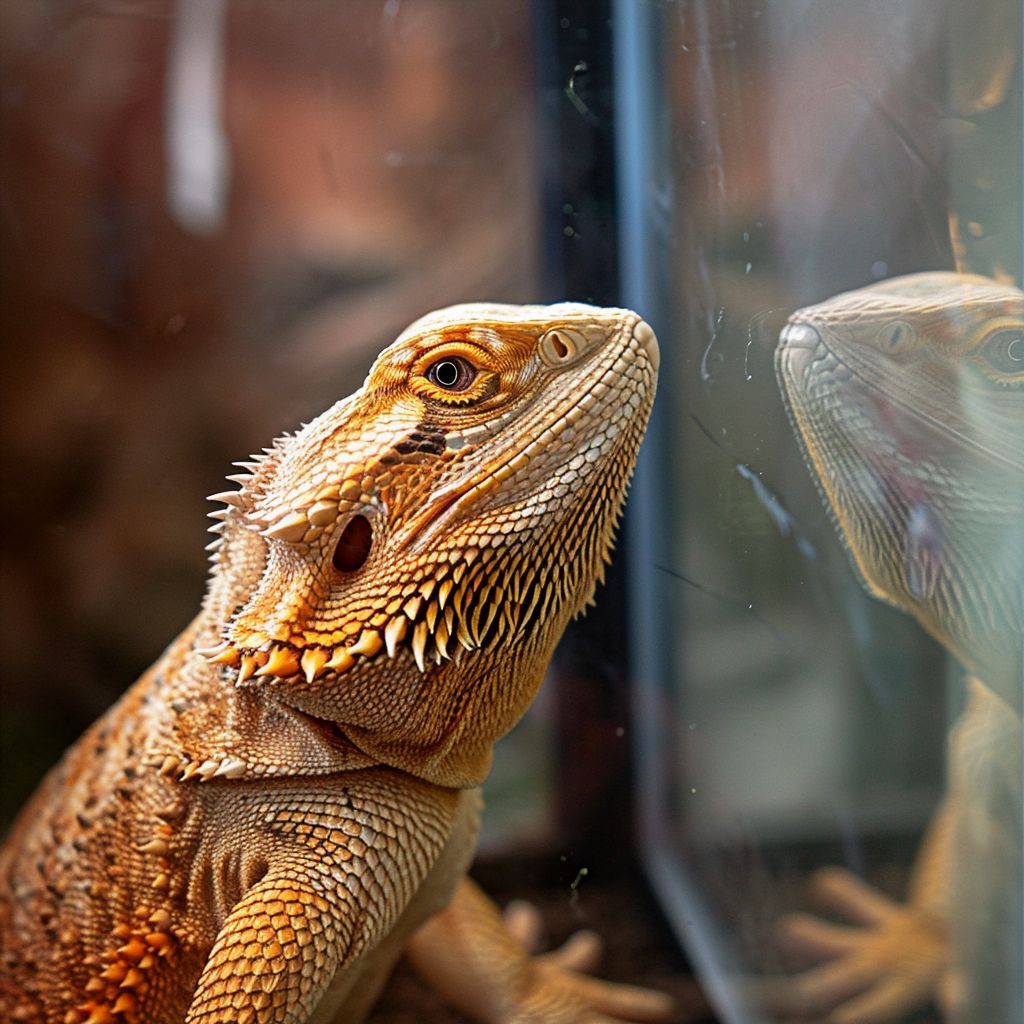Table of Contents
As reptile owners, one of our top priorities is ensuring our beloved bearded dragons receive proper care and nutrition. However, there may be times when our scaly friends refuse to eat, leaving us wondering how long they can safely go without food. In this comprehensive guide “How Long Can a Bearded Dragon Go Without Food?”, we’ll explore the factors that influence a bearded dragon’s ability to fast, the risks associated with prolonged periods without sustenance, and practical tips to encourage healthy eating habits.
Understanding a Bearded Dragon’s Metabolism
Bearded dragons are ectothermic, or cold-blooded, reptiles with a metabolism that operates differently from warm-blooded mammals. Their food intake and energy requirements fluctuate based on various factors, including temperature, age, and activity levels. Unlike their furry counterparts, bearded dragons can tap into their fat reserves, allowing them to survive periods without food more effectively.
Factors Affecting How Long They Can Go Without Food
Several key factors influence how long a bearded dragon can go without eating:
Age
A bearded dragon’s age plays a crucial role in determining its fasting limits. Younger dragons, particularly those under one year old, have higher metabolic rates and growth requirements, necessitating more frequent feeding.
Juvenile Bearded Dragons (under 1 year old): These growing dragons may only be able to safely go without food for 5-7 days.
Baby Bearded Dragons (under 3 months old): Due to their rapid growth and development, babies should never go more than 2-3 days without eating.
Temperature
Temperature significantly impacts a bearded dragon’s metabolism and, consequently, its ability to go without food. In cooler temperatures, their metabolism slows down, reducing their energy needs and allowing them to survive longer periods without sustenance.
Health Status
A bearded dragon’s overall health and stress levels can influence its appetite and willingness to eat. Ill or stressed dragons may refuse food, potentially leading to prolonged fasting periods. In such cases, it’s essential to address any underlying health issues before attempting to encourage eating.
Brumation
Brumation is a hibernation-like state that some bearded dragons experience during cooler months. During this period, they may not eat for several months while relying on their fat reserves for sustenance. However, brumation should only occur in healthy, well-nourished dragons under appropriate environmental conditions.
A Healthy Adult Bearded Dragon’s Limits
For a healthy adult bearded dragon, the general guideline is that they can typically go without food for 2-3 weeks under ideal conditions. However, it’s crucial to monitor their weight, behavior, and overall health during this time.
After the 2-3 week mark, the risk of developing hepatic lipidosis, also known as fatty liver disease, increases significantly. This condition can be life-threatening if left untreated.
Signs that your bearded dragon needs to eat include:
- Weight loss
- Lethargy
- Sunken eyes
Risks of Not Eating for Too Long
Prolonged periods without food can have severe consequences for a bearded dragon’s health and well-being. Some of the potential risks include:
- Hepatic lipidosis (fatty liver disease): As mentioned earlier, this condition can be fatal if left untreated.
- Muscle wasting: Without proper nutrition, bearded dragons can experience significant muscle loss, leading to weakness and mobility issues.
- Weakened immune system: Malnutrition can compromise a bearded dragon’s ability to fight off infections and diseases.
- Lethargy and inability to thermoregulate: Lack of energy can make it difficult for bearded dragons to regulate their body temperature, which is essential for their overall health.
- Potential long-term effects on growth and development: For younger dragons, prolonged periods without food can stunt their growth and development, leading to permanent issues.
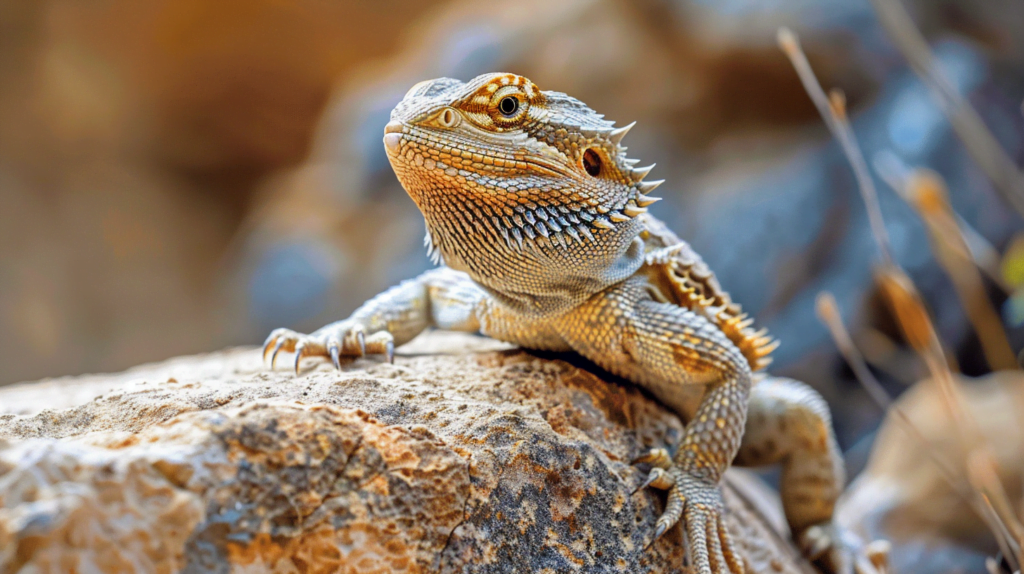
How to Encourage Your Bearded Dragon to Eat
If your bearded dragon has stopped eating, there are several strategies you can employ to encourage a healthy appetite:
- Offer a variety of fresh veggies, fruits, and live insects: Providing a diverse and appealing diet can help stimulate their interest in food.
- Ensure proper temperatures for optimal digestion: Bearded dragons require specific temperature ranges to digest their food properly. Adjust their basking and cool areas accordingly.
- Consider appetite stimulants: Products like Reptivite or Fluker’s can sometimes help kickstart their appetite.
- Have a vet rule out any underlying health issues: If your bearded dragon continues to refuse food, it’s essential to have a veterinarian examine them to identify and address any potential medical problems.
What to Do If Your Dragon Isn’t Eating
If your bearded dragon still refuses to eat after trying the above strategies, it’s crucial to take action promptly. Here’s what you should do:
- Don’t wait more than 2 weeks for adults or 1 week for juveniles: Prolonged periods without food can have severe consequences.
- Consider syringe or tube feeding: In some cases, you may need to provide supplemental nutrition through syringe or tube feeding to prevent further weight loss and health issues.
- Seek veterinary intervention: Severe cases of anorexia may require professional veterinary care, including force-feeding, fluid therapy, and other supportive treatments.
Conclusion
While bearded dragons can survive periods without food, it’s crucial to understand the risks and limits associated with prolonged fasting. By monitoring their age, health status, and environmental conditions, you can make informed decisions about when intervention is necessary.
Remember, prevention is always better than cure. Providing a balanced diet, maintaining appropriate temperatures, and addressing any underlying health issues promptly can help ensure your bearded dragon remains happy, healthy, and well-nourished.
Don’t let your scaly friend go too long without food – their well-being depends on your attentive care and commitment to their nutritional needs.
